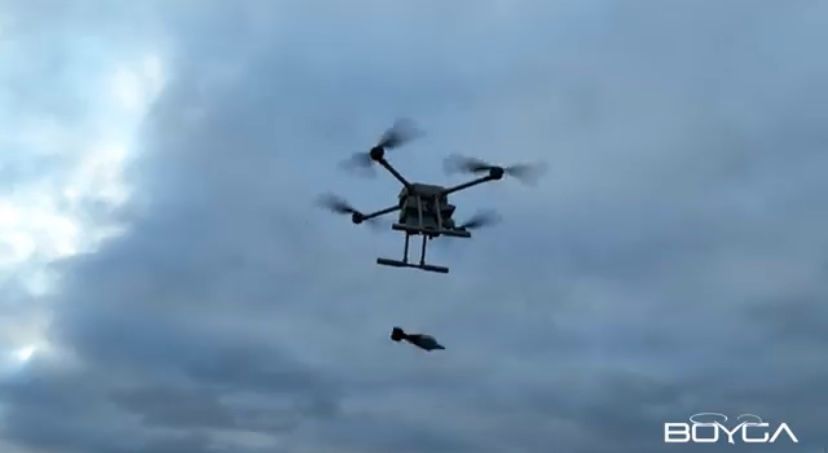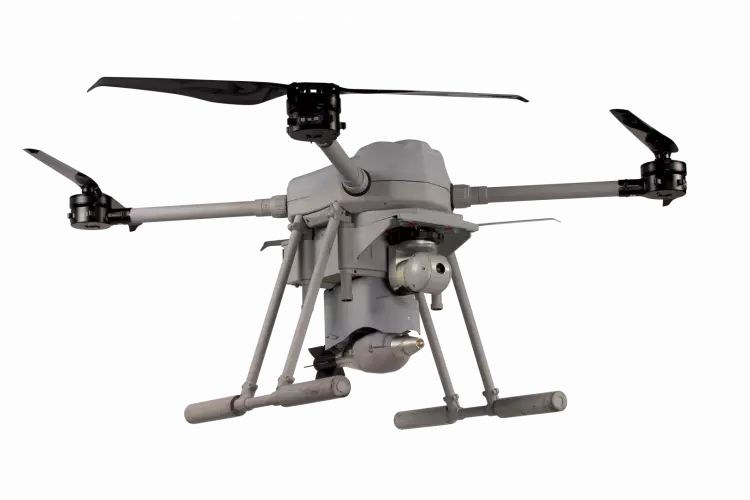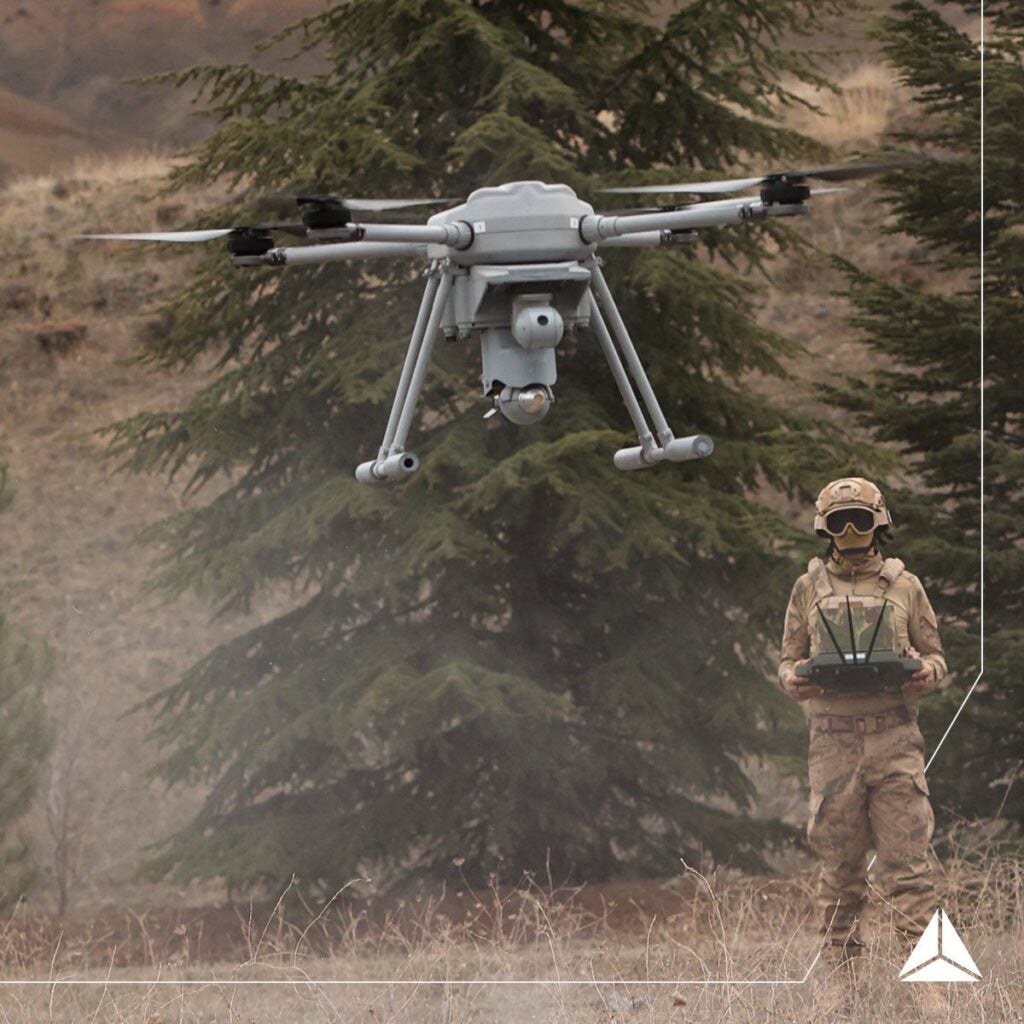Turkey’s Rotary Wing Unmanned Aerial Vehicle With Mortar Payload BOYGA Achieves Its First Export Success
Defense Technologies Engineering and Trade Inc. (STM), one of Turkey’s leading defense industry companies, continues to be successful in the export of tactical mini drone systems. The company, which had previously signed contracts with over ten international customers for its KARGU, TOGAN, and ALPAGU unmanned aerial vehicles, has now exported their BOYGA system for the first time.
According to STM’s statement, the first international user of the Rotary Wing Unmanned Aerial Vehicle with Mortar Payload BOYGA after Turkey will be an African country, with deliveries scheduled for 2024. However, no comment was made on other details such as the country name, the number of systems sold, or the agreement’s cost.

STM General Manager Özgür Güleryüz stated that the Tactical Mini UAV family, which they developed with advanced engineering capabilities for the needs of the Turkish Armed Forces, is also a pioneer in the international arena and said: “We achieved a significant success by exporting all members of our tactical mini UAV family, which has successfully proven itself in the field. Our negotiations for new exports of our UAVs, which create a surprising and effective impact in the field, are continuing. We have also increased our production capacity in the field of mini UAVs to meet the demands of our army, as well as our friendly and brotherly countries.”
BOYGA is an unmanned aerial vehicle system developed in collaboration with STM and MKE Inc. that can carry 81mm mortar ammunition as a payload and drop it on the selected target from variable mission altitudes. The system, which entered the Turkish Armed Forces’ inventory in 2022 and has been actively involved in the fight against terrorism, cross-border operations, and international exercises to date, is made up of three components: an unmanned aerial vehicle platform, a ground control station, and a charging station.

BOYGA has a quadcopter design with four rotors. A single soldier can easily set up and operate the system, which has a very compact structure with folding arms, dimensions of 800x800x500mm, diagonal length of 1,150mm, and weight of 15kg (without payload). The system can carry one 81mm mortar round developed by MKE Inc., which is 337mm long and weighs 2kg, at a time. This payload, which has a high-explosive fragmentation warhead, has an effective radius of 15 meters and an explosive effect of 1,300 5mm particles. The system, which has a 10-kilometer mission range, can stay in the air for 30 minutes with this payload, reaching a flight altitude of 1,500 meters above ground level and a cruise speed of 20 meters per second.
Boyga’s other capabilities include the ability to carry out missions day and night thanks to its dual-axis gimbal system and 10x optical zoom imaging system with HD 720P video resolution, vertical takeoff and landing (VTOL), low RCS, autonomous mission execution, and post-mission automatic return home feature.
Given the recent rise of asymmetric threats that increase uncertainty in many conflict zones around the world, particularly the Ukraine-Russia war, and their impact on shaping the battlefield, international interest in low-cost drones such as Boyga is expected to grow. Furthermore, given Turkey’s recent success in the field of unmanned systems and the high returns it has received from exports, it is highly likely that it will increase its current market share with Boyga and similar products.

